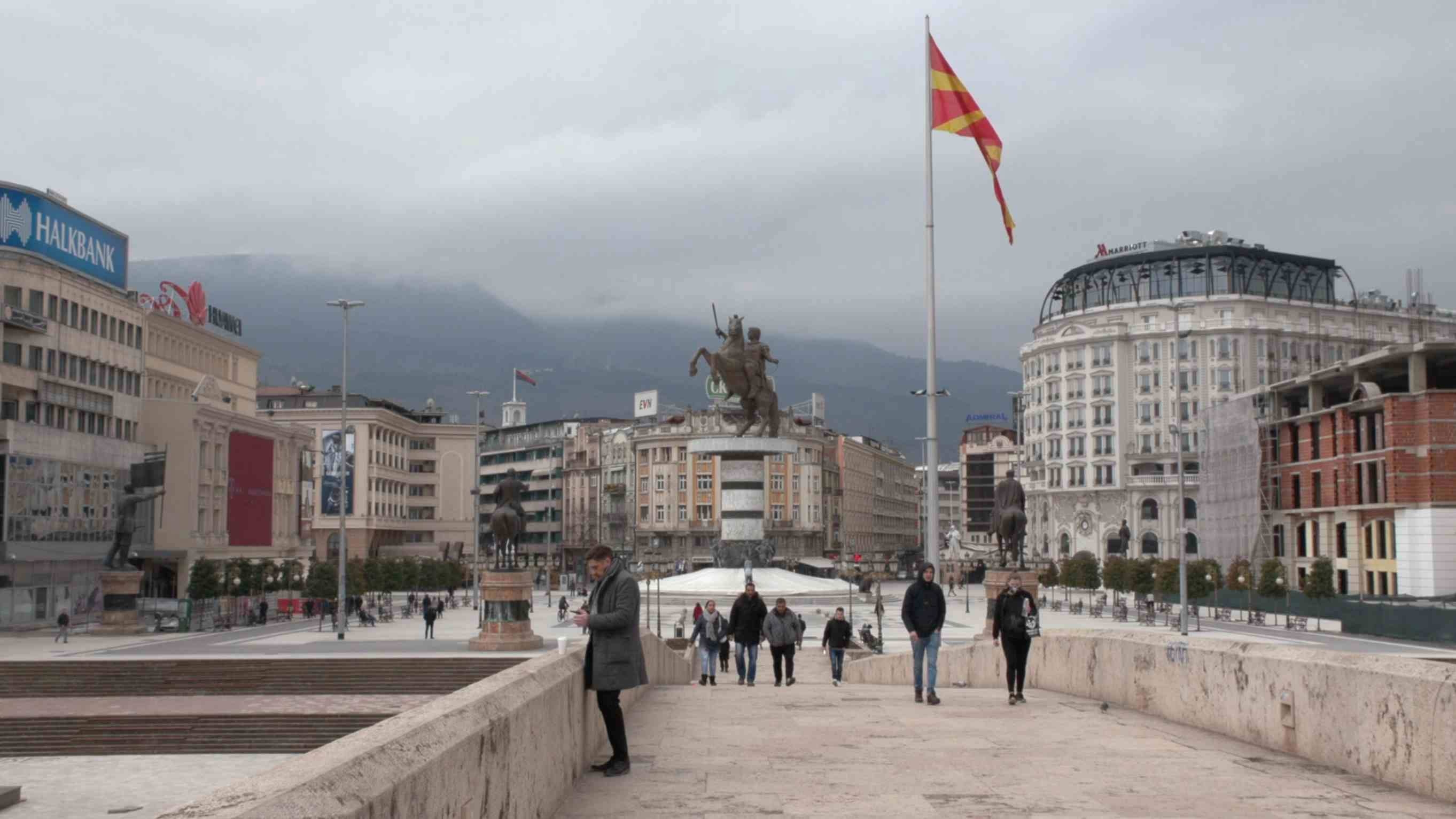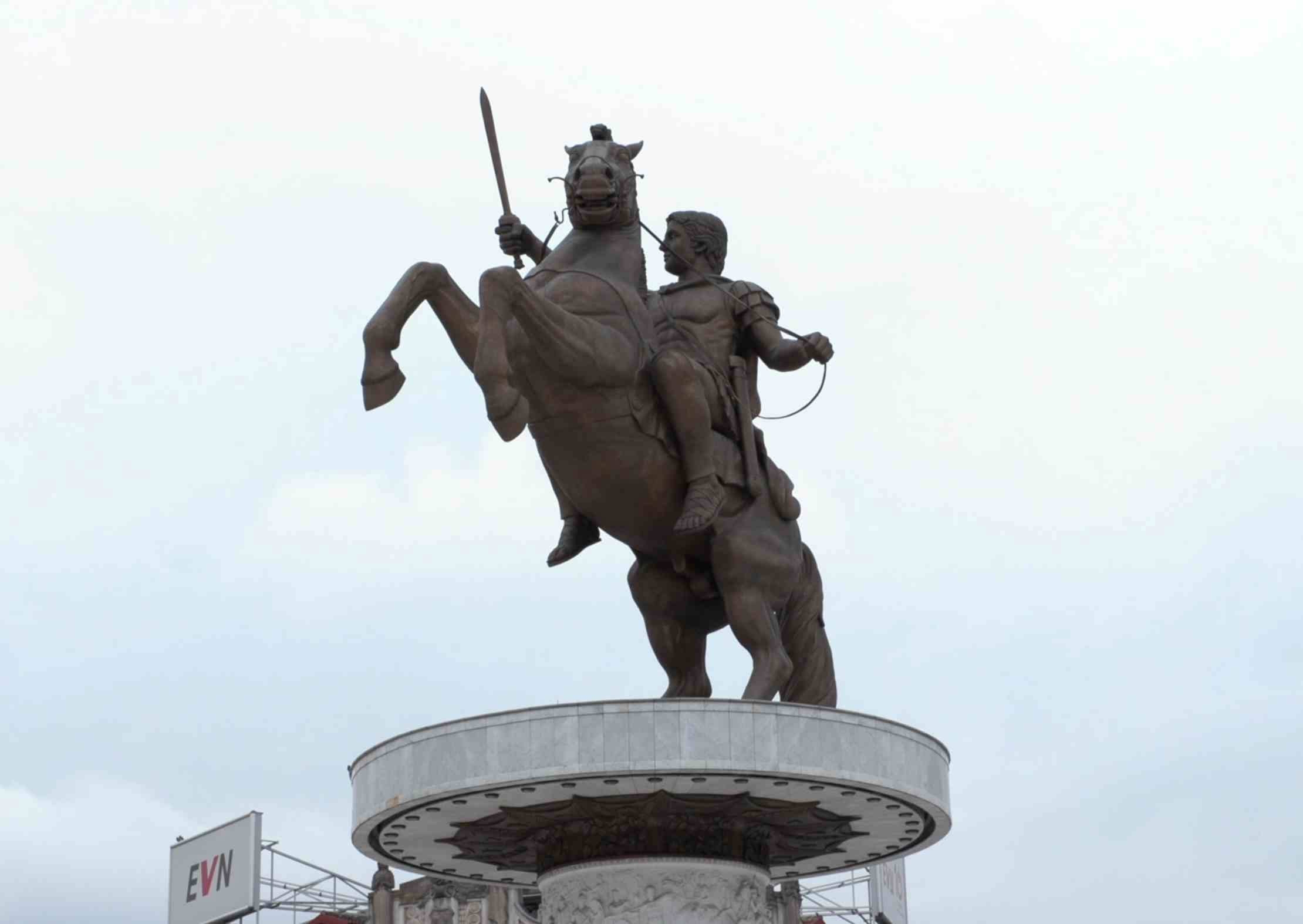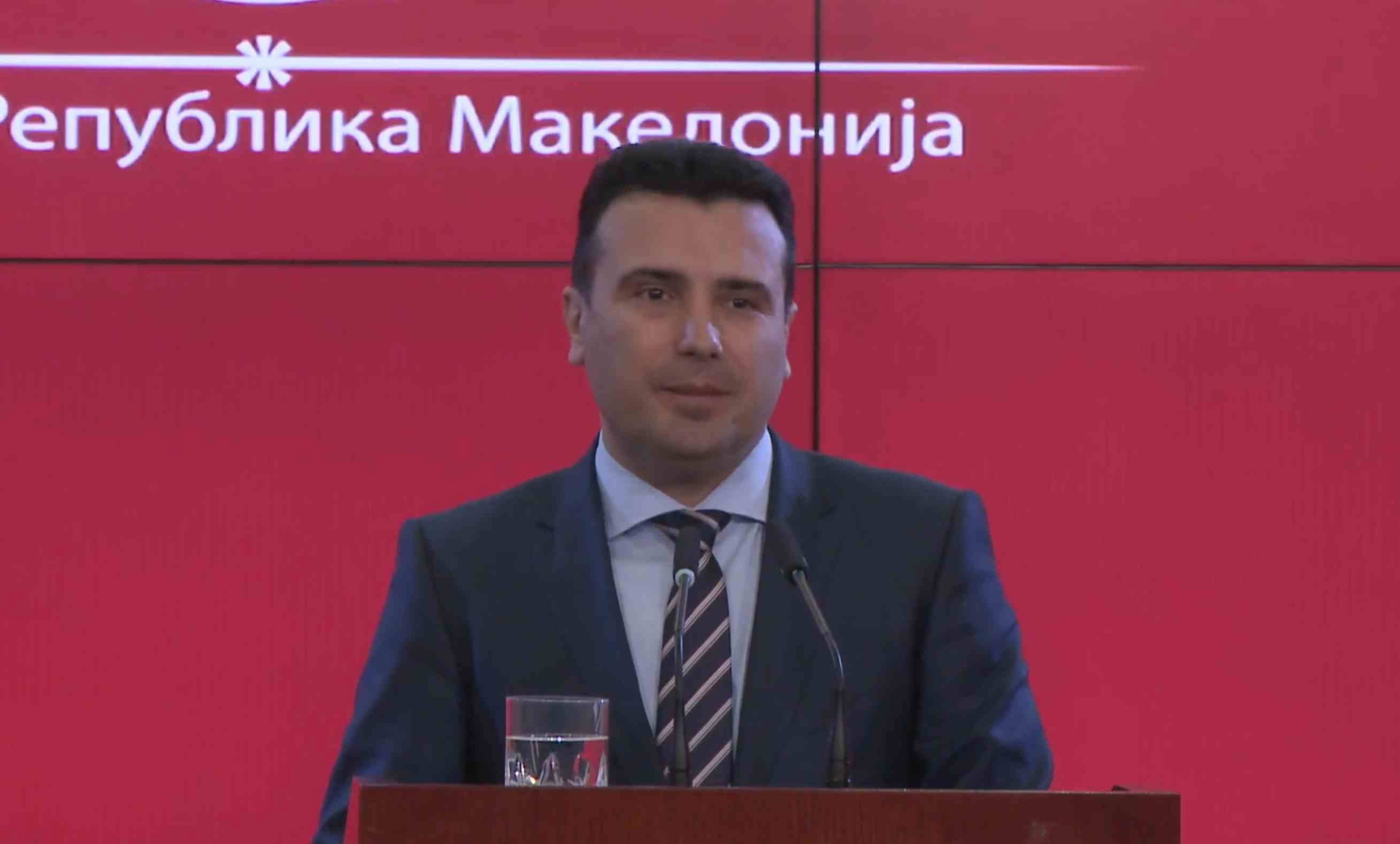
Politics
12:32, 12-Feb-2018
Republic of Macedonia or FYROM or …?
By Aljosa Milenkovic

For over 25 years, the Republic of Macedonia has been struggling to get international recognition of its constitutional name. Its main obstacle is Greece, which believes the name Macedonia is related to one of its northern territories. Under UN mediation, the two countries are inching closer to ending a quarter century of stalemates with a permanent solution that will open NATO doors to Macedonia’s membership bid.
There is a substantial list of issues that need to addressed, and the recent makeover of Macedonia's capital Skopje may be one of them.
Controversial city center
Completed in 2014 with a price tag of around 700 million US dollars, renovations to Skopje's city center brought antique Greek-style buildings, a 22-meter-high statue of Alexander the Great, and hundreds of tons of shining white marble – not to mention a lot of controversy.

Alexander the Great statue at Skopje's city center. /CGTN Photo
Alexander the Great statue at Skopje's city center. /CGTN Photo
This project immediately provoked angry reactions from Athens, with claims that the architecture is stolen from Greek history. They also say this show of cultural heritage has nothing to do with the country that the United Nations recognizes as the Former Yugoslav Republic of Macedonia.
But when speaking with locals, many are rejecting these accusations. They say Alexander the Great, or Alexander of Macedonia, was one of them, and claim the project is just overpriced and kitsch. “This is not architecture in the 21st century. This is literally kitsch," said Martin Panovski, president of the Association of Architects of Macedonia. "Looking from the outside, it is literally kitsch. It should be pleasing for the eye, attractive for masses and tourists. And that’s the definition of kitsch.”
The city square is just one of the many sources of tension between the two countries.
Optimism among politicians
The Skopje airport is another point of contention. Recently, the government announced the airport will no longer bear the name “Alexander the Great,” nor will the country’s main highway.
It wasn’t long ago that huge road signs spelling out “Alexander of Macedonia Highway” were along the route. But all signs are about to be torn down and systematically removed after the government decided to rename both the highway and the airport.
This unilateral move by the Macedonian government signals an openness to compromise with Greece on a final solution.
Macedonian Prime Minister Zoran Zaev hopes that it can be reached soon.

Macedonian Prime Minister Zoran Zaev. /CGTN Photo
Macedonian Prime Minister Zoran Zaev. /CGTN Photo
“I’m an optimist. The solution can be found. It will be very hard," Zaev said. "It won’t be easy, and we didn’t expect it to be easy, or something on the side of the road, that is easy to pick up. We are dedicated to it, the government, ministers, me. I’m confident that the solution can be found.”
Unlike the Macedonian government, Risto Nikovski, a former Macedonian ambassador, is not so positive and optimistic about the deal. According to him, it is the result of huge pressure on both sides.
“I have to say that for the first time in the last 25 years, I can see that Greece is under serious pressure to accept a solution which would be very hard to swallow. And the pressure comes from the United States, whose key interest is the quick entry of Macedonia into NATO in order to secure the southern flank of the Alliance,” Nikovski said.
It is widely circulated both in Skopje and Athens that this historic deal will be reached by June. The doors will be open for Macedonia’s entry into NATO and the European Union, but the decision will certainly leave many unsatisfied.

SITEMAP
Copyright © 2018 CGTN. Beijing ICP prepared NO.16065310-3
Copyright © 2018 CGTN. Beijing ICP prepared NO.16065310-3